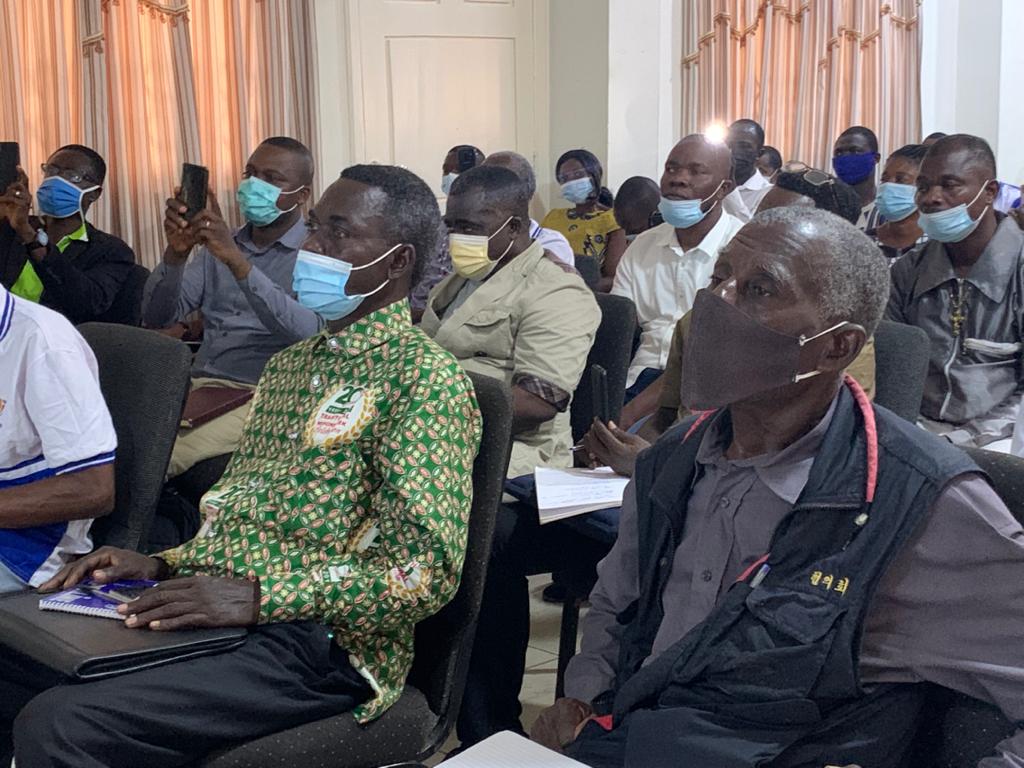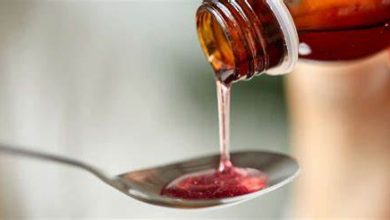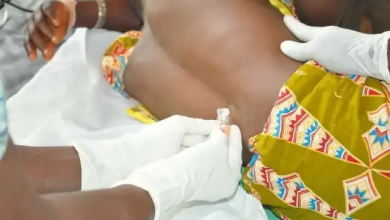FDA Trains Herbal Products Manufacturers On Good Manufacturing Practices

The Food and Drugs Authority (FDA) in the Western Region has held a day’s training program for herbal products manufacturers in the region to sensitize them on relevant laws regulating the manufacture and sale of the respective product and to provide them with points to consider in preserving herbal medicines to withstand shelf-life specifications, especially in terms of microbial load.
Mr Benjamin Appiasam-Dadson, a Senior Regulatory Officer who spoke on the Public Health Act, 2012 (ACT 851) said Part 7 of the Act was enacted to control the manufacture, importation, exportation, distribution, sale, use and advertisement of all food , drugs, cosmetics, household chemical substances, medical devices, blood and blood products, clinical trials, tobacco and substances of abuse in order to ensure their safety, efficacy and quality.
He hinted that a person shall not manufacture, prepare, import, export, distribute, sell, supply or exhibit for sale a drug, herbal medicinal product, cosmetic, medical device or household chemical substance unless the article has been registered by the Authority under the Act.
He enlightened that an application for the registration of a drug, herbal medicinal product, cosmetic medical device or household chemical substance shall be made to the Authority in the prescribed manner and be accompanied with the prescribed fees.
Mr Appiasam-Dadson announced that a person shall not advertise a drug, a herbal medicinal product, cosmetic, medical device or household chemical substance to the general public as a treatment, preventive or cure for a disease, disorder or an abnormal physical state, unless the advertisement has been approved by the Authority under the Act.
He explained that a person commits an offence if that person labels, packages, sells or advertises a drug, a herbal medicinal product, cosmetic, medical device or household chemical substance in contravention of Regulations or Guidelines made under this Part; or in a manner that is false, misleading or deceptive or misbranded as regards its character, constitution, value, potency, quality, composition, merits or safety.
Mr Francis Edem Odum, a Senior Regulatory Officer who spoke on the preservation of herbal medicines mentioned the adverse effects and overdose of preservatives as hypersensitivity, skin irritation, contact dermatitis and urticaria.
He enlightened that storing products in plastic containers or glass bottles (amber colored) depends on the type of constituents of formulation, pH; adsorption of preservatives and leaching of pack, pH drift, loss of activity of preservative.
He said for herbal capsules and tablets, acceptable primary packaging materials include plastic bottles with airtight aluminium foil and desiccant for absorption of moisture whilst for herbal ointments and creams, flexible plastic and aluminium tubes were acceptable.
Mr Odum stressed that the name of the product shall not be offensive, unethical, socially or traditionally unacceptable, superstitious or magical while the name of the product must not bear any resemblance in spelling or pronunciation to an already registered product.
All dosages should be stated in words and for products meant for children, the age ranges shall be specified for each dosage regimen whiled dosage should be for children above twelve (12) years.

Alhaji Kweku Usman, Western Regional Vice Chairman of the Ghana Federation of Traditional Medicine Practitioners Associations (GHAFTRAM) was grateful to the FDA for organizing such training for them and said it will go a long way to help them in manufacturing safety, quality and efficacy medicines for Ghana health system.
However, he pleaded with the Authority to organize such training programs frequently for the group to improve their production.



